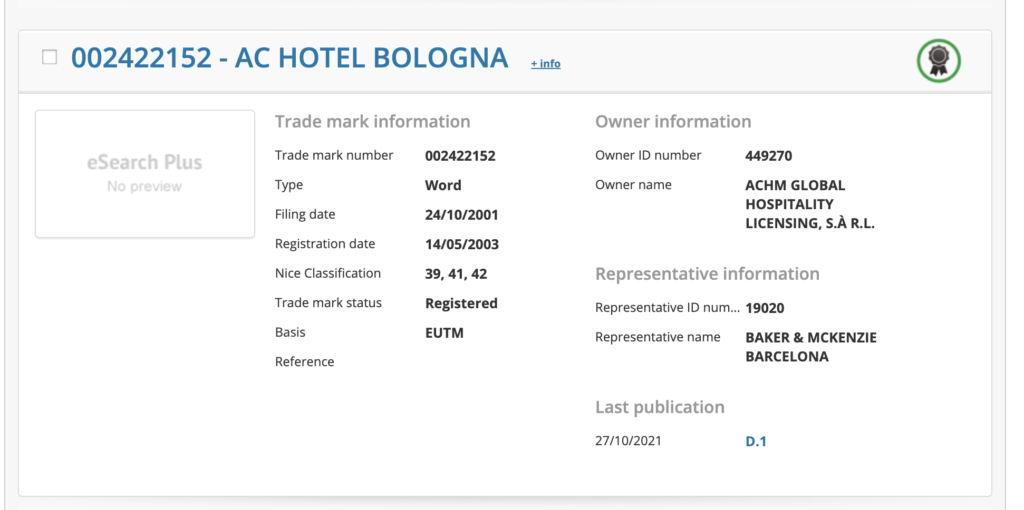Keys of Revenue Management: Safeguarding Your Hotel Brand from Brandjacking

Brandjacking combines the words “branding” and “hijacking.” It’s when someone exploits a company’s brand equity, such as creating fake social profiles or mirror websites. The most common type is Affiliate Brand Bidding (ABB). This involves bidding on search engine ads using terms related to the target company. Have you ever typed your hotel’s name in the search engine and all that pops up is Booking,com, Expedia, Trivago, and TripAdvisor before the website of the hotel? That’s ABB.
How Do We Deal with This?
At the hotel revenue management consulting company, this problem is often. If you search for your hotel and see OTAs first, that’s not ideal. So, what can you do to protect your hotel?
Hotels: Children of a Lesser God?
According to a study by MarkMonitor, Affiliate Brand Bidding in travel causes an economic loss of around $2.2 billion USD. Other industries prevent this through trademark enforcement, but it’s common in the travel industry. Online giants like Booking.com and Expedia often redirect traffic from hotel brands to their websites. Hoteliers have little bargaining power, so contracts with Booking.com often allow them to bid on hotel names. Did you know this?
How Can Hotels Protect Themselves?
Renegotiating clauses with OTAs and distributors is the best way to go, but it’s tough. A simpler, though costlier, solution is to bid on your hotel brand yourself, directing traffic to your official website. This is called brand protection.
Filing a Complaint with Google
One that is not widely known but can be of great help is reporting a trademark infringement to Google. Here’s how to do it:
Step 1: Register Your Trademark
First, file a trademark application with the (EUIPO) in Alicante, Spain here. Apply for a word mark, not a logo, as Google only considers word marks. The application takes less than ten minutes. However, one in five applications faces opposition, so legal advice might be wise. The trademark costs €850 and is valid for ten years.
Step 2: File a Complaint with Google
Once your trademark is registered, file a complaint with Google here. You can file the complaint yourself or authorize a third party, like a consulting agency or lawyer, to do it for you. If a third party files it, you need to send written authorization to ads-trademarks@google.com.
What You Can Achieve
The legislative attitude towards Google advertisers has become more permissive. Up until a few years ago, it was possible to ask for trademark protection at the keyword level. Since 2010, you can’t prevent an OTA or review site from bidding on trademarked keywords. However, hotels can still protect their brands at the ad level. OTAs can occur when a user enters the hotel brand as the keyword however the brand can not be used in the ad copy (although it can be part of the URL of the ad).
For ad campaigns focused on the EU and EFTA countries (Iceland, Liechtenstein, Norway, Schweiz), the trademark policy regarding ad text is in force. No protection is possible for campaigns targeting Australia, New Zealand, the US, Canada, the UK, and Ireland. In these countries, AdWords campaigns can include the hotel trademark in the ad text, so there’s no utility in registering a trademark worldwide.
Not Only Google: Other Search Engines
Bing has a similar complaint process, which you can find here. Yandex, the main Russian search engine, is more permissive due to Russian laws favoring competition. Baidu, the Chinese search engine, requires special authorization from the People’s Republic of China to advertise.
The Importance of a Quality Score
Applying for a trademark is worthwhile. Preventing OTAs from using your trademark in ads lowers their Google AdWords quality score. This means they must bid more to maintain their position on the search results page. If their quality score drops too low, their ads might not show at all. Google’s quality score ranges from 1 to 10 and calculates the relevancy and value of the ads and the pages. The score indicates how friendly the website is towards its users, and thus the higher the score the more friendly towards the user.
Make this happen
A solid trademark strategy, combined with effective search engine advertising (SEA), helps regain control of your brand. According to Benjamin Sebagh, Technical Director at Creative Hackers, “Your brand is your most precious asset.” Protecting it can boost your web production by over 10%. Now, it is about time that hotel marketing and revenue managers face this problem squarely. Avoid your brand getting to the wrong people. So the above steps when put into practice safeguard your brand, at the same time builds on its recognition and reliability in the cut throat online world. Take action now to secure and strengthen your hotel’s digital presence.Finding out whether a specific hotel has protected its brand against Affiliate Brand Bidding (ABB) and brandjacking isn’t always straightforward, as hotels don’t typically publicize their legal actions or brand protection strategies. However, there are several ways you can check:
1. Search the Hotel Name on Google or Other Search Engines
- Test ads and results: Type the hotel’s name into Google and observe whether OTAs (Online Travel Agencies like Booking.com, Expedia) appear in paid ads before the official hotel website. If OTAs don’t show up, it may indicate the hotel is actively protecting its brand.
- Examine the ad text: If you see that an OTA is using the hotel’s name directly in the ad text (not just in the URL), it’s likely the hotel hasn’t protected its trademark at the ad level. On the other hand, if the hotel name is missing from the ad text but appears only in the URL, it means the hotel may have filed a complaint with Google and is utilizing brand protection.
2. Search for a Trademark in Online Databases
- EUIPO (European Union Intellectual Property Office): For hotels in Europe, you can check if the hotel has registered a trademark using EUIPO’s online database. On their website, you can search for the hotel’s name and see if they have applied for a trademark (such as a wordmark rather than just a logo).
- Search link: EUIPO Trademark Search
- WIPO (World Intellectual Property Organization): For hotels outside of the EU, you can use WIPO to search for international trademarks.
- Search link: WIPO Trademark Search


3. Filing a Trademark Complaint
- You can try contacting the hotel’s legal department or the hotel directly to ask if they have filed a trademark complaint with Google. Most large hotel chains like Hilton, Marriott, or Accor have already taken this step, and it might be visible in the search results.
4. Analyzing Advertising Campaign Results
- Some hotel marketing agencies and consultants may have data on which hotels actively protect their brand using PPC (pay-per-click) campaigns. For example, companies specializing in online marketing might have insights that show what steps hotels take to direct their campaigns and prevent brand misuse by OTAs.
5. Consult Revenue Management Agencies
- If a hotel is working with a revenue management consulting firm (such as the one mentioned in the article), you could reach out to them directly and ask if the hotel actively protects its brand. These companies often help hotels with legal aspects like trademarking and protecting against ABB.
By combining these methods, you can determine if a hotel is taking steps to protect its brand against brandjacking and ABB.
If you want to know how to implement or optimize your direct booking strategy, I encourage you to get familiar with my Inevitable Hotel Success Mentoring Programme. It provides valuable insights to help hoteliers enhance their booking processes and drive more direct revenue, and this practice is a great feature to strengthen your overall direct booking strategy.
Good luck and let me know, how it goes.
Yours Radka








